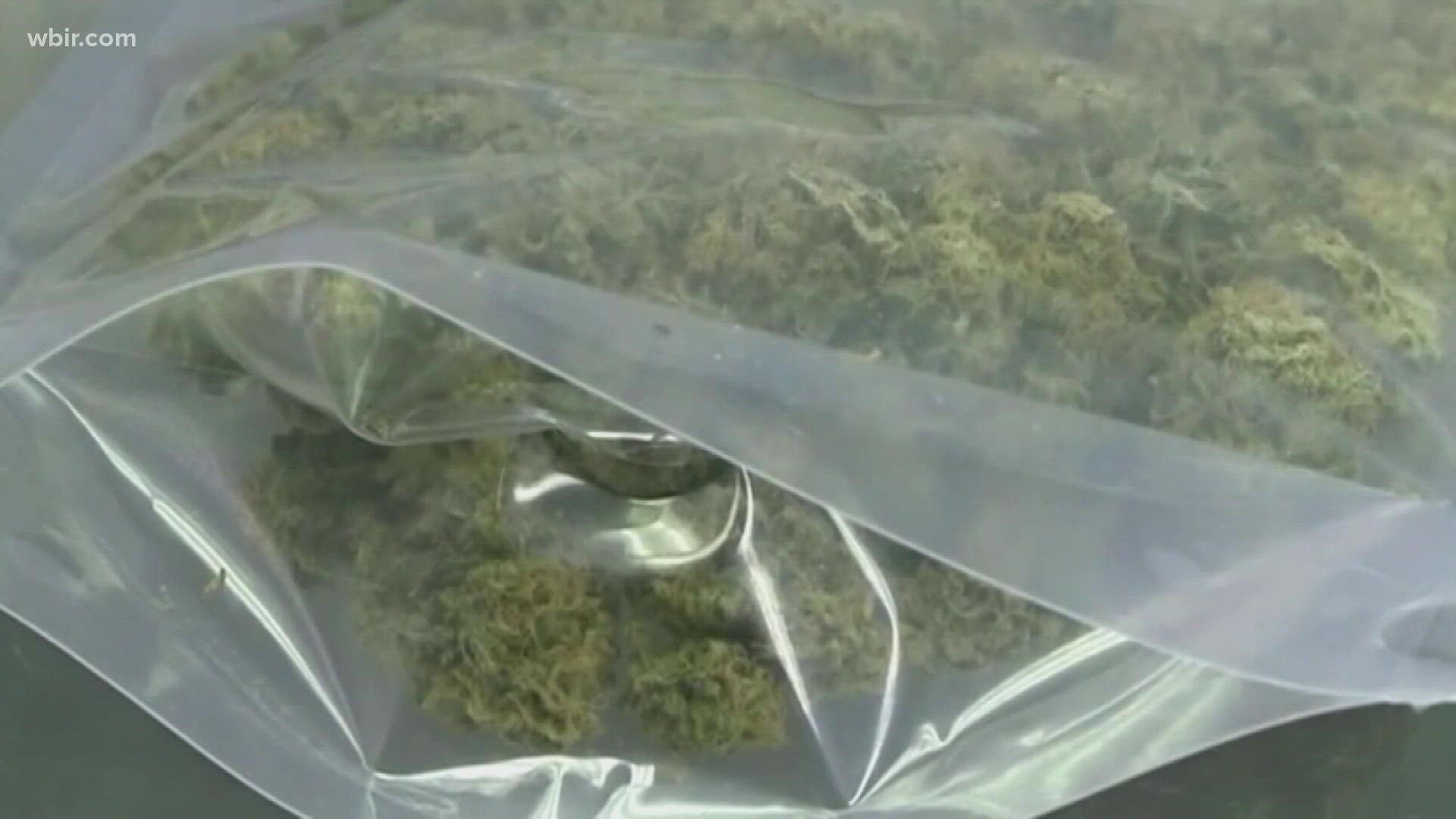NASHVILLE, Tenn — A Tennessee lawmaker wants to legalize marijuana use, cultivation and sales across the state.
Rep. Bob Freeman (D-Nashville) introduced HB 1968 on Jan. 25, which he is calling the "Free All Cannabis for Tennesseans Act." As of Jan. 28, it had been assigned to the Criminal Justice Subcommittee for consideration.
The bill would overhaul Tennessee laws to legalize recreational and medical pot across the board.
If passed, adults 21 and up in the state would be allowed to use and possess up to 60 grams of marijuana for personal use. They would also be allowed to grow up to 12 marijuana plants on their private property so long as the growing area is not publically visible from the ground and is secured with locks or other devices.
Minors with medical conditions would only be allowed to use medical marijuana with parental supervision after consulting with a doctor.
The bill also sets standards for retail marijuana operations, making it legal to grow, process and sell plants, seeds, and paraphernalia with the proper licenses from the Department of Agriculture.
The proposed law would provide legal protections to people who use marijuana, but would still allow employers to consider marijuana use as a basis for refusing to hire applicants if the job's responsibilities are consistent with the employer's hiring policy in regard to other adulterants that would cause a refusal. It would also allow landlords to ban marijuana use in homes and apartments, much like tobacco.
If it takes full effect, local governments would not be allowed to pass more restrictive marijuana use laws under the proposed legislation in most cases. However, county or municipal governments would be allowed to hold a vote to decide whether to ban marijuana sales and growth, but must pass it with a two-thirds majority and must renew it yearly.
If passed, it would still be a crime to consume marijuana in a motor vehicle, aircraft, watercraft or public place -- unless the public place is restricted to minors and designated as an area where marijuana use is permissible.
If vendors sell to minors under 21, the bill proposes making it a Class C misdemeanor on the first three offenses, and a Class A misdemeanor on all other offenses, resulting in the seller losing their license for two years.
The rest of the bill goes over how the different state departments would regulate and enforce marijuana licensing, growth and sales in Tennessee.
Freeman also proposed taxing marijuana at 15% of the sales price. Growers, processors and dispensaries would be entitled to a 25% refund on sales and use tax.
50% of the tax funds the state receives would be given to the agriculture department to create public safety campaigns and fund green power initiatives in some counties.
20% would be given to the Department of Safety to train law enforcement on cannabis-related laws, support officers injured on duty, and support families of officers killed on duty.
Another 20% of tax money would be deposited in the state's employee legacy pension stabilization reserve trust, another 5% would go to the Department of Education for use on education programs on the health and legal risks of underage marijuana consumption, and the remaining 5% would be retained by the Department of Revenue to pay for any administrative fees.
Finally, the bill proposes changes to urine testing standards. If passed, the bill would prevent the state from revoking bail, parole, or suspended sentences if the person solely tests positive for marijuana during a urinalysis. It would also prevent schools from restricting extracurricular activities to minor students using medical marijuana who test positive.
Government entities would also be banned from taking action against employees based solely on a positive urine test. The state would also not be allowed to withhold money from people receiving government assistance through public programs.

